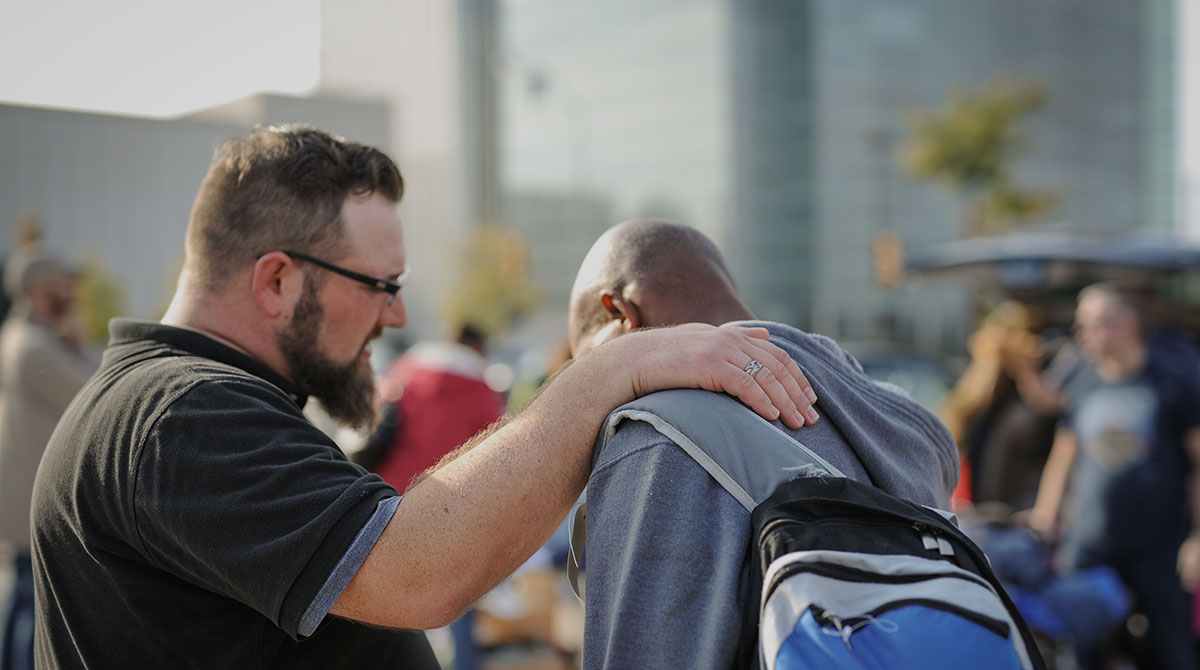It was her first time outside the country. Maria was 13 years old when she joined her youth group on a seven-day mission trip to Nogales, Mexico. Honestly, she was nervous. Despite her Latino family history, Maria had not been the greatest student of the language. And being from a white-collar family, she was unsure of the living arrangements and food available to her in this impoverished area. Yet she knew she wanted to grow in her faith.
During that trip, the youth group engaged in many activities, including construction projects, Vacation Bible School, soccer games, talent shows, church services and street evangelism. By the end of the week, Maria was hooked.
Before the mission trip was over, her youth pastor gathered the group and said, “God used you here in great ways, didn’t he?” The students nodded. Looking at them intently he proclaimed, “The same Holy Spirit who lives in you in Mexico lives in you at home, too.”
That missions trip was a spiritual catalyst in Maria’s life. Year after year she went back to Mexico – Nogales, Hermosillo, Basconcobe, Mazatlan. The people there became like a second family, and boarding the van to head home was always one of the hardest moments of her life.
At church Maria became a part of the student ministry leadership team and planned evangelistic events for her friends to attend. At school she joined the cheerleading squad to reach them with the gospel. As a high school student, she spent a summer in the Philippines.
After she was married, Maria joined the church missions team, traveling the world and helping others experience what she had done as a youth. At the same time, her heart for neighbors, co-workers, relatives and friends to know Jesus grew as she and her husband prayed and planned how to best reach them with the gospel.
Little did she know that as a result of taking a small step of faith when she was 13, her life would become truly missional.
Mission trips are one of many catalysts that help a believer move forward toward an evangelistic lifestyle. Years ago, I was trained by Dann Spader and the Sonlife team to think through the role of evangelism in the maturity of a believer. From that training, I designed a chart that distinguished types of evangelism, differentiating our experiences with two prevailing factors — peer connection and sense of threat.
Non-Peer, Low Threat: These activities fall into the category of “serving strangers.” Many churches have activities such as neighborhood improvement projects, community service opportunities, soup kitchens, clothing drives, food pantries, etc., that serve the less fortunate in their region.
These activities are valuable in many ways, including living out biblical imperatives, establishing a positive reputation in the community and encouraging the timid to engage in foundational evangelistic efforts.
Peer, Low Threat: These activities differ from the non-peer category because they engage people in our everyday lives. As such, our efforts move beyond cultivating relationship to planting spiritual seed. Inviting someone to an evangelistic event, letting people know you are praying for them, even sharing a testimony of God’s work in your life are all activities designed to let people know, My belief in God is important to me/making a difference in my life.
These efforts invite others to explore faith in Christ on their own. Threat is low because we are sharing what’s important to us without yet asking them to believe what we believe.
Non-Peer, High Threat: These activities may be considered “non-peer” because we are working with strangers or perhaps different age groups. Yet, they may be “threatening” because we are ministering in an uncomfortable environment or moving beyond cultivating relationship and planting a seed to reaping a response to spiritual truth.
Peer, High Threat: These activities include all reaping activities with our neighbors, classmates, co-workers, business associates, relatives and friends, etc., that we will see over and over again. The sense of threat feels high because we all desire solid, lasting relationships in our workplace, neighborhood, school and family as we interact with them day after day and week after week.
After Jesus’ interaction with the woman at the well (Jn. 4), many in Samaria acknowledged him as the “Savior of the world.” In a conversation with his disciples, Jesus gives this insight: “I sent you to reap what you have not worked for. Others have done the hard work, and you have reaped the benefits of their labor” (Jn. 4:38).
With this statement, he gives us insights into our personal and corporate evangelistic efforts.
- Evangelism is a process, not an event. The evangelization process includes cultivating relationships, planting the seed of Christ and reaping a response. All three are essential.
- People can be anywhere in that process. Someone else may have “planted the seed” with someone in your life.
- The “hard work” of evangelism is cultivating and planting. We often think the most difficult part of evangelism is calling people to a decision. According to Jesus, the hard work is the day-to-day, week-to-week grace and truth interaction we have with neighbors, co-workers, classmates, relatives and friends, as well as anyone else we might interact with.
- We should immerse ourselves in the hard work. All of us need to find ways to engage in relationships with people outside the Christian faith.
- Churches should have a plan to assist individuals in their efforts to help people move from cultivate to plant to reap. This may involve prayer, community service, mission trips, evangelism training and evangelistic services. But it also needs to include the admonition to reach those God has placed around them with the gospel.
My hope as a result of this conversation is that the church and individuals who are part of the church would work diligently as partners to help people meet, know and follow Jesus.
